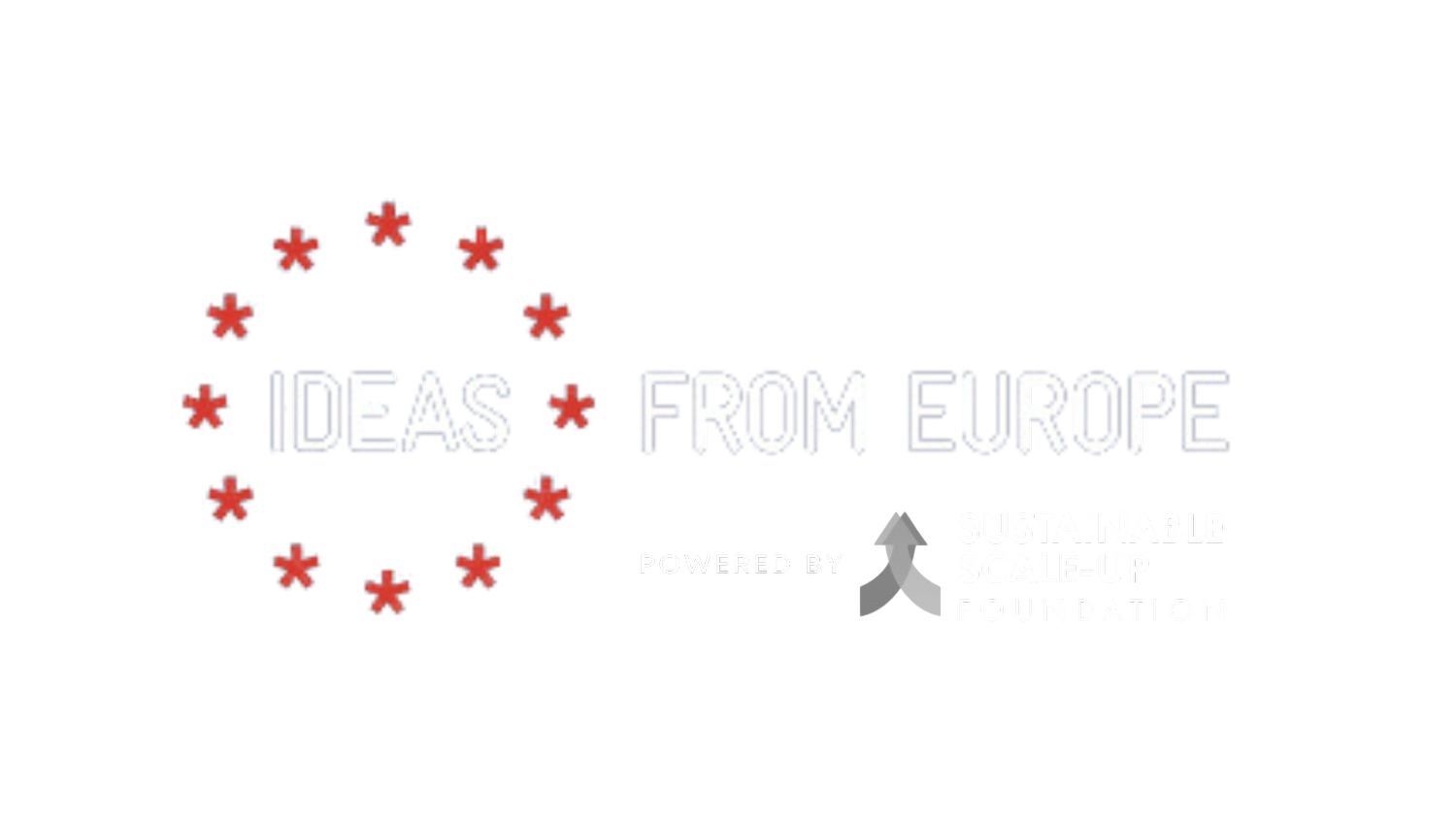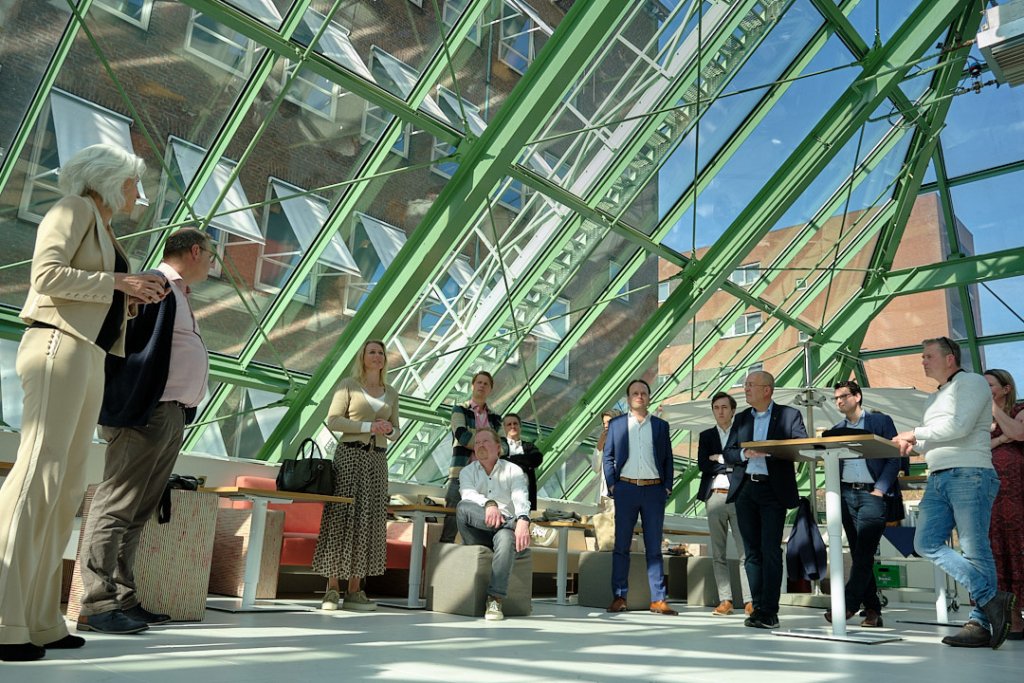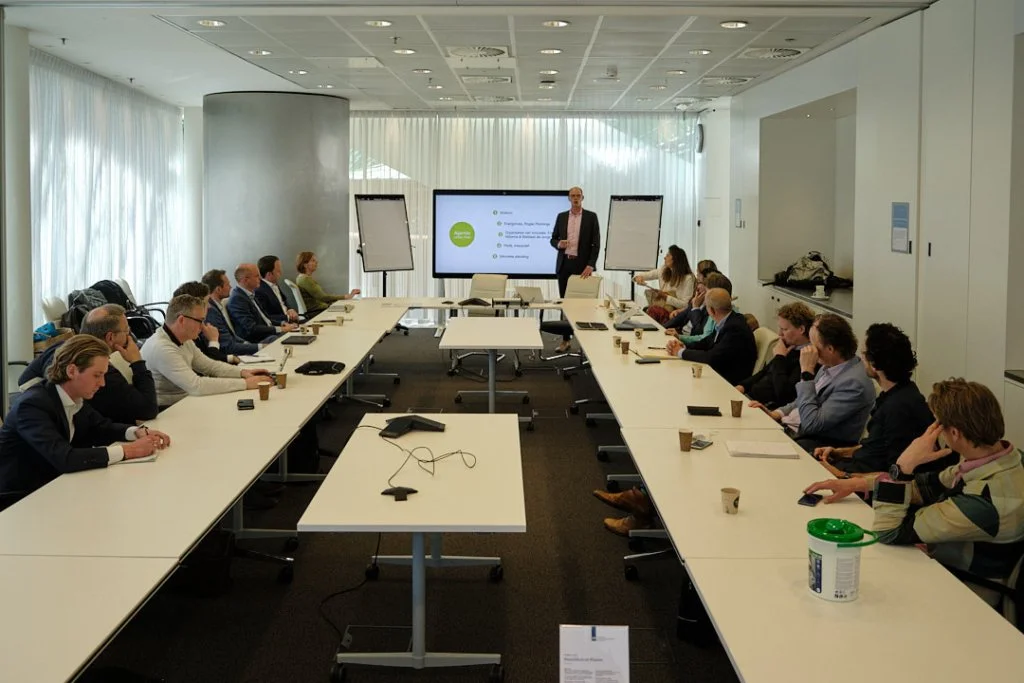ENERGY HUBS: FROM PLAN TO IMPLEMENTATION
On the 14th of April 2022 26 entrepreneurs, investors, experts and officials met at the Ministry of Economic Affairs en Climate Policy in The Hague to discuss progress in system integration, e.g. storage and conversion in energy hubs.
The focus was on transforming (light) industrial zones and business parks into energy hubs. Jillis Raadschelders of Mott MacDonald chaired the meeting. The goal was to share knowledge on innovations, current projects, finance possibilities and legal issues. And of course to network.
In the first half of the meeting Rogier Pennings of Stevin Technology Consultants shared his company’s insights on energy hubs in mobility pilots. This was followed by a duo presentation by Friso van Abbema and Bastiaan de Jonge. Friso van Abbema of Turnbright gave insights on the role of energy hubs in the broader policy of regional energy strategies. Bastiaan de Jonge of the province of Utrecht shared the approach in Utrecht aimed at facilitating innovation.
In the second half of the meeting four entrepreneurs pitched their pilots after which the other participants reacted with knowledge, contacts or technical assistance. The four pilots were totally different and led to various outcomes from insights in finance to new working relations with the university or an organisation providing access to local ownership.
The four pilots were:
Organising solar power for beach clubs in a Natura2000 area with limited access to the grid, combining excess energy with a local renewable energy hub including storage and charging for cars. The current net connection is old but a new and heavier connection is not possible. The beach clubs need more energy but they shouldn’t use diesel aggregates inside the Natura2000 area. So they look for renewable options. The demand for energy is in line with the availability of sun which makes solar ideal. At the same time a construction for sun and cars would provide cover and electric charging to cars. This energy hub needs cooperation from the grid operator, Natura2000 manager, local government and the commercial operator of the parking area as well as the nearby hotel (for winter consumption). More info from Stefan.
The QuinteQ flywheel effect: acceleration of electrification. QuinteQ has developed a kinetic battery that can efficiently store and deliver severe powerpeaks whereby the net connection required can be reduced for several specific applications. It can deliver an endless amount of cycles at low cost and is based on non-rare materials that can easily be recycled. Together with partners QuinteQ wants to demonstrate the advanced and mobile QuinteQ flywheel. The flexible storage solution helps applications with severe power peaks such as inland port cranes, tower cranes at construction sites, metro trams and trains to free up capacity on their present net connection. This is done by regenerating brake energy and peak shaving of power peaks. This creates a stable solution and room to use the net connection for further electrification of the operation. The demonstration tests deliver concrete results supporting the business cases, support the frontrunners in these businesses to make this electrification step, and deliver the policy makers, knowledge institutes, grid operators and industries the required information about this new solution. QuinteQ is looking for support for demonstration tests for different applications to make partners willing to test.Support can be financial, but also in-kind hours and knowledge. More info from Margien Storm.
Nature positive Schiebroek Rotterdam business park. The project is an initiative of all business and real estate owners on the park, which have been organised in a ‘business investment zone’ since 2012. The park has its own energy cooperation with a soon to be operational solar installation (1.7 Mw). Their next ambition is to become nature-positive. They are looking for funding (in addition to their own investment of EUR 800,000 in the coming year), government support and reliable data. More info from Edwin Markus.
Cooperative Betuwewind West-Betuwe has 1,000 members. They have built wind turbines and are aiming to use the profits for innovative growth in the region. Their goal is to use locally produced energy for their members at cost price. This asks for a differently organised value chain, based on transparency and long term cooperation. But also new tasks like local balancing. Energy cooperatives are new players and still have difficulties to be accepted in the old world. Especially when they want to change the current system (like with energy hubs). More info from Siward Zomer.
All participants concluded that small interactive meetings are extremely important to bring projects further and move from planning to action. The next European online session will be 31 May 2022 online: Transforming business zones into Energy Hubs. Register now and join us!


